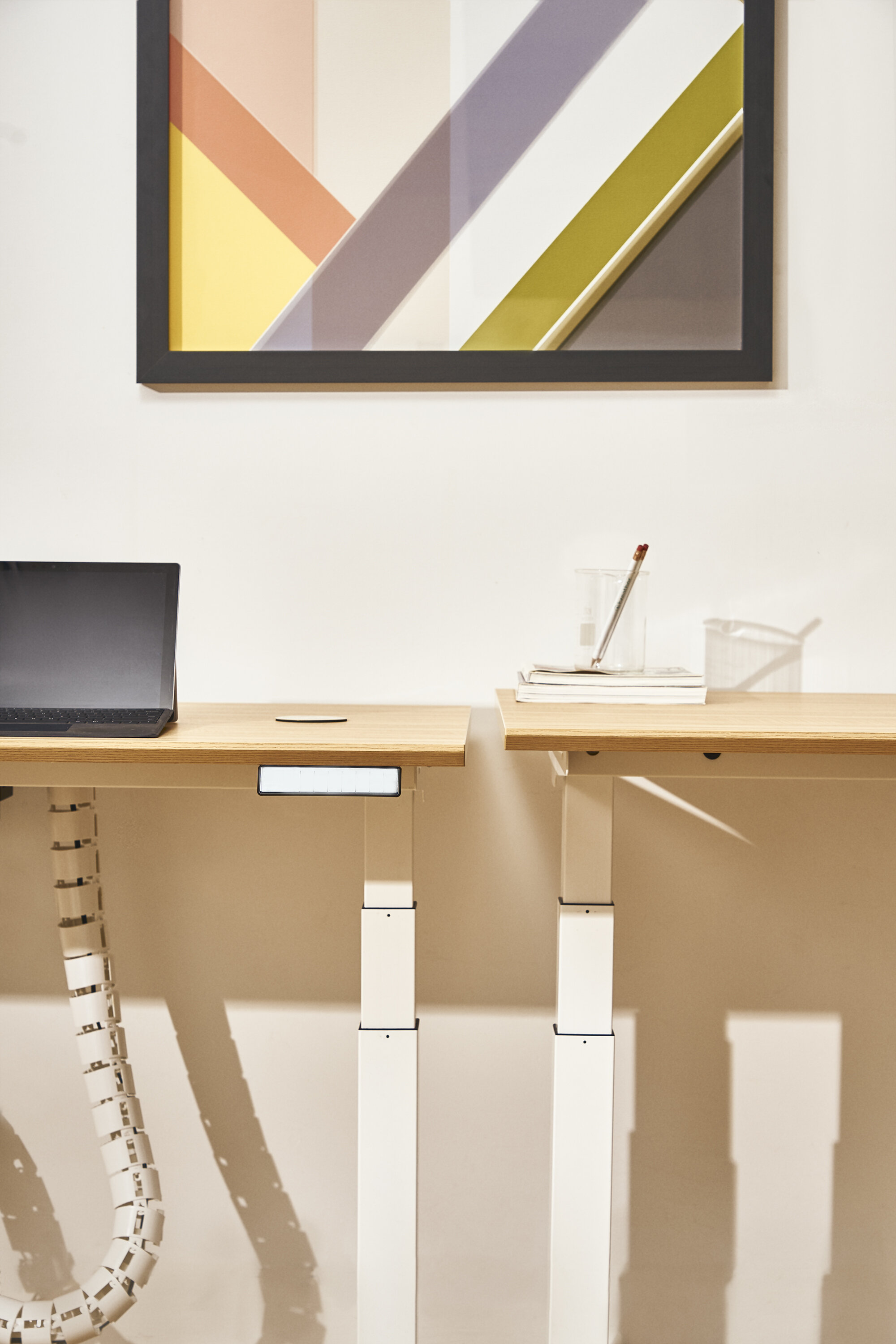A new office furniture company in Manhattan is aiming to shake things up a bit. Branch launched this month, offering high-end office furniture at near 50% discounts off the high-end price. The company raised $2.4 million from a group of investors — Nine Four Ventures, Alate Partners and founders Greg Hayes, Sib Mahapatra and Verity Sylvester — who want Branch to be the go-to company for affordable, high-end office furniture.
Branch's furniture is affordable because the company sells directly to its customers, with no dealers to stand between the two.
“We're not saying dealers are bad,” Hayes said. “They fill an important role for a lot of companies, just not the market we're after. We're not going after the same clients that Herman Miller is probably going after. We're not going after Goldman Sachs or J.P. Morgan. They certainly can make use of dealers. Our market includes the companies that can't afford the products from some of the giant manufacturers, but because of that, they wind up at Office Depot or Ikea because it's closer to the price point they can afford.”
Branch helps companies outfit their offices with premium furniture in three ways — easily, affordably and flexibly, according to Hayes. The company handles everything from space planning to manufacturing the furniture to delivery and white-glove installation.
“We roll everything up in an easy-to-understand package with no hidden fees,” Hayes said. “Because we're selling our products directly and not through dealers, we can offer our furniture at half or less of what traditional office furniture might cost.”
Hayes began his career in institutional real estate in Toronto. He didn't work with furniture directly, but saw companies spend hundreds and thousands, and in some cases, millions of dollars on furniture.
“It seems like an absurd amount of money to spend on systems and desks,” he said.
Hayes moved his career to New York and worked for Breather — a flexible space provider — and found himself interacting with the office furniture world even more.
“In the early days, we were buying more traditional style office furniture,” Hayes said. “But when you're growing fast, long lead times with dealers and the crazy markups just weren't practical for us. So, we bought furniture from Ikea, Amazon, Office Depot, places like that. And it struck me as strange that there wasn't a good option in the middle. The quality is fantastic on the traditional furniture but pricing and timing are problematic. It seemed like there was enormous opportunity in this market to create a really high-quality office furniture product that didn't use dealers for distribution and adding a layer of flexibility to it.”
Last fall, the company formed and raised a very small amount of seed capital to make some prototypes, build a website and open a pop-up shop in New York. Within a month, Branch sold all of its initial inventory.
“It was kind of a light bulb moment that we have something here,” Hayes said. “So, we decided it was time to put some fuel on this fire, and we went out to the venture market.”
Why would anyone want to invest in an already saturated office furniture market? Hayes believes it's because Branch's investors have a vision — especially those with a background in technology who saw other direct-to-consumer startups that skipped out on the middle man and saw this was a huge opportunity in the office space.
An example Hayes cites is the mattress industry, where for the longest time the key players have been Sealy, Serta and Tempur-Pedic. No lower-priced product wrapped it in a great brand that people could get excited about. Then, along came Casper and Purple, which transformed the mattress market.
“The office furniture market is this quiet giant that nobody really thinks about,” Hayes said. “You've got a lot of competitors at the high end, like Herman Miller, Steelcase, Knoll and HNI, and you've got a lot of players at the low end, like Office Depot and Staples and Ikea. There's a huge chunk of the market, somewhere between $10-20 billion a year, that nobody owns yet. There are some exciting players in there like Poppin, but no one really owns it yet. So our investors really saw an opportunity there, and so do we.”
Branch, named to invoke the concept of growth and the ability to branch off in different and greater directions (like office branches), launched its line within the general aesthetic of modern furniture. Moving forward, the company plans to add new products with a softer, residential feel consistent with the high-end quality Branch delivers. Its client base falls into three general categories.
“The first is what we call WeWork graduates,” Hayes said. “They've hit 20 or 30 employees, and it's time to get a new space, their first office. We fit really well into the budgets of those types of companies and their need for flexibility and swiftness. We're also seeing quite an amount of business from traditional medium-sized companies in the insurance space or the creative space. They aren't really startups but don't want to spend $3,000 per employee on office furniture. The third group is landlords. Because of the swell of coworking companies, landlords are looking to pre-furnishing their spaces so companies can move right in, and our flexibility and price point is really important to them.”
Hayes reports Branch is in the $5-million to $10-million run rate range and employs about 10 people, including in-house designers. Three manufacturing partners make Branch's furniture designs — two in China and one in South Korea. A North Carolina facility is going to be on board soon. Over time, Branch plans to move more production to the U.S. It has one showroom in Manhattan's Flat Iron District. Over the next year, Branch plans to open more in San Francisco, Los Angeles, Toronto, Boston and a few other cities. Though the company is based in New York, Branch delivers and installs products all over the country.
In addition to its goal of being the go-to brand for mid-market office furniture in the U.S. and Canada, Hayes said he hopes to inspire the entire office furniture industry to think about its current model.
“There are ways to do things more efficiently, both on the front end where dealers play a huge part in the cost of furniture and on the back end where the furniture winds up in a dump after one company uses it. Only 9% of office furniture gets reused. We need to see changes in the industry's structure and wastefulness.”
To do its part, Branch offers a 10-year warranty on its furniture, takes back used Branch furniture to refurbish and applies a credit toward the client's next purchase when upgrading its space.
“We do this to save it from the landfill,” Hayes said. “Seventeen billion pounds of furniture a year is thrown away in the U.S. alone, so we're just trying to do our part to keep it out of the landfill or incinerator as long as possible.”





